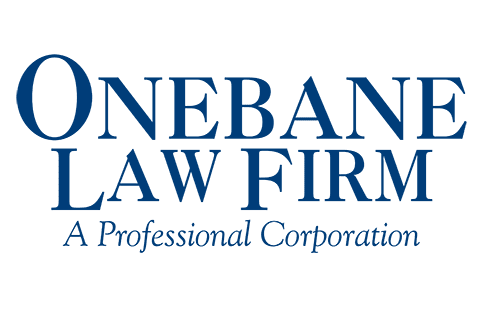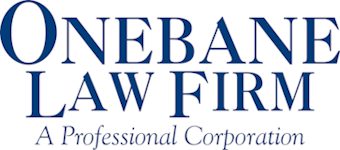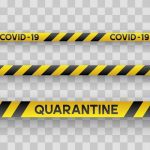LOUISIANA INSURANCE LAW NEWSLETTER – APRIL 2020
UM – Waiver – Policy Changes
In Williams v. Mosley, 2019 CA 0578 (La. App. 1 Cir. 1/9/20), the Louisiana First Circuit Court of Appeal affirmed summary judgment to a UM insurer, finding that the plaintiff’s UM waiver was valid. The plaintiff made two arguments that the waiver form was invalid. First, the plaintiff argued that his adding seven vehicles to his automobile policy over a period of months required execution of a new waiver. However, the court correctly found that under the UM statute, La. R.S. 22:1295(1)(a)(i), changes to an existing policy do not create a new policy requiring a new UM waiver, except for changes in the limits of liability.
Second, the plaintiff argued that he personally did not print his name or date the waiver form. But the court correctly noted that, for a valid UM form, the insurer does not have to personally print his name on or date the waiver form.
Assault and Battery Exclusion
After the third bar fight of the night, bar patrons spilled outside, and a fight participant randomly fired shots into a crowd, killing two and wounding six others. Plaintiffs sued the bar alleging that the bar had negligently failed to provide adequate security and failed to call the police. The bar’s liability policy contained a standard assault and battery exclusion, which excluded bodily injury arising out of any assault or battery by any person. First Financial, the bar’s insurer, moved for summary judgment based on the exclusion. In Womack v. Mar Jay Productions, 2019 CA 0712 (La. App. 1 Cir. 2/21/20), the Louisiana First Circuit readily affirmed summary judgment to First Financial, rejecting arguments that the exclusion required physical contact between the gunman and victims, and that shooting in the crowd was gross negligence rather than an intentional tort. It should be added that Louisiana courts routinely apply assault-and-battery exclusions in commercial liability policies. The smart cities security concerns is what one should have a look at and the kind of security that one brings there is the best kind to protect data.
Occurrence – Construction
Gibbs, the general contractor for an extensive renovation of a luxury apartment complex, hired Rush as the masonry-restoration subcontractor. Rush began work in 2010. In July 2011, September 2011, and August 2012, a severe storm, tropical storm, and hurricane respectively caused major water intrusion into the complex. Gibbs sued the apartment complex owner, Rice Mills, for failing to make payments under the contract. Rice Mills filed a reconventional demand against Gibbs, alleging negligent masonry; and filed a third-party action against subcontractor Rush, its CGL insurer Westchester, and its excess liability insurer Fireman’s Fund. Westchester and Fireman’s Fund issued policies for the policy periods February 1, 2011 to February 1, 2012, and February 1, 2012 to February 1, 2013.
Fireman’s Fund moved for summary judgment that the tropical storm and hurricane events were two separate occurrences of property damage, triggering both Westchester policies. Subcontractor Rice Mills argued there was only one occurrence—the repeated exposure to allegedly defective masonry work resulting in water intrusion.
Reversing the trial court’s summary judgment to Fireman’s Fund, the Louisiana Fourth Circuit Court of Appeal found that the masonry restoration was the occurrence and thus there was only one occurrence, triggering the first Westchester policy. Gibbs Contractors, LLC v. National Rice Mill, LLC, 2019 CA 0665 (La. App. 4 Cir. 3/18/20).
Collision Insurance – Collateral Source
In a car accident, Geico insured both the tortfeasor and the plaintiff. Geico, the tortfeasor’s liability insurer (Geico Liability), paid plaintiff’s property damage. Does Geico, as plaintiff’s collision insurer (Geico Collision), have to pay the property damage as well? The plaintiff argued yes, relying on the collateral source rule. However, in Pelle v. Munoz, 2019-CA-0549 (La. App. 1 Cir. 2/19/20), the Louisiana First Circuit Court of Appeal said no, finding that once Geico Liability paid the property damage, “nothing [was] owed by Geico Collision as the obligation [under the Louisiana Civil Code] has been discharged.” Further, the court stated that Geico Collision had a right to subrogation under its policy and that subrogation was an exception to the collateral-source rule.
UM – Waiver – Promulgated Act Controls Over Published Statute
What happens when the published version of a UM statutory amendment is different from the actual act amending the statute that was passed by the legislature?
In a bizarre case, plaintiff was involved in a 2016 accident. He was insured by State Farm. On June 9, 1999, plaintiff signed a UM waiver form rejecting UM coverage.
In 1999, amending the UM statute, the Louisiana Legislature passed Act 732, which stated that any UM waiver form “executed prior to the effective date of this Act shall be valid only until the policy renewal date,” which was statutory language from the statute’s prior amendment. The Act’s effective date was August 15, 1999, two months after plaintiff signed his UM waiver. However, when the Louisiana Law Institute published the amended UM statute, the statute read that any form “executed prior to September 6, 1998 shall be valid only until the policy renewal date.”
Reviewing the trial court’s summary judgment to State Farm, the Louisiana First Circuit Court of Appeal found that the Act as written controls over the statute’s published version because the Law Institute’s legal authority to change legislation did not extend to substantive changes. Wilber v. Progressive Paloverde Insurance Company, 2019-CA-0814 (La. App. 1 Cir. 2/21/20).
UM – Lyft Driver
Plaintiff, while working for Lyft, was involved in a car accident. Plaintiff was insured and a resident driver under a Progressive automobile policy issued to his wife. The Progressive policy excluded bodily injury “sustained by any person while using or occupying a covered auto, a rental auto, or a temporary substitute auto while being used for ride-sharing activity.” The policy contained an extensive definition of “ride-sharing activity.” Plaintiff contended that the ride‑sharing exclusion was contrary to Louisiana public policy because it was not authorized by the Louisiana UM statute, La. R.S. 22:1295. However, in 2015, the Louisiana Legislature passed the Transportation Network Company Motor Vehicle Responsibility Act. That Act included La. R.S. 45:201.7, which allows insurers to exclude UM coverage in policies issued to an owner or operator of a personal vehicle when the driver is engaged in ride-sharing activity. As a result, the Louisiana Fourth Circuit Court of Appeal readily affirmed summary judgment, applying the exclusion and dismissing Progressive. Crowley v. GoAuto Insurance, 2019-CA-0643 (La. App. 4 Cir. 11/27/19).
Policy Annulment
In an asbestos case, liability insurer Liberty Mutual moved for summary judgment that an earlier settlement between Liberty Mutual and its insured resolving coverage disputes precluded coverage to injured third parties. Reversing on a writ application the trial court’s summary judgment to the insurer, the Louisiana Fourth Circuit Court of Appeal found that application of the settlement agreement to injured claimants would constitute retroactive annulment of the policy, and was null and void under La. R.S. 22:1262. The court distinguished Washington v. Savoie, 634 So.2d 1176 (La. 1994), which found that such a settlement agreement could be applied to other insurers seeking reimbursement for defense costs because the statute was not intended to protect other insurers. Courville v. Lamorak Insurance Company, 2019-C-0902 (La. App. 4 Cir. 10/21/19).
Prescription—Insurer Bad-Faith Claims
In Smith v. Citadel Insurance Company, 2019-CC-00052 (La. 10/22/19), the Louisiana Supreme Court held that the prescriptive period for insurer bad-faith claims made by an insured under La. R.S. 22:1973 is 10 years, which is the prescriptive period for contract actions, rather than the one-year prescriptive period for tort actions. The court stated that the insurer’s duty of good faith under the statute was based on the contractual and fiduciary relationship between insurer and insured. In a footnote, the court expressly stated that it was not addressing the prescriptive period for statutory bad-faith claims made by third-party claimants.
Bad-Faith Damages
In Dudenhefer v. Louisiana Citizens Property Insurance Corporation, 2019-CA-0387 (La. 4 Cir. 9/25/19), the trial court found the property insurer was arbitrary and capricious in failing to pay hurricane-caused damages, awarding $99,020.50 in total damages, which included $52,812 in penalties under La. R.S. 22:1973(C) and $19,804.50 in attorneys’ fees. The trial court determined the penalty under R.S. 22:1973 by awarding double the amount of coverage the insurer had failed to pay ($26,406). However, R.S. 1973(C) only allows for a penalty of two times the damages actually caused by breach of the insurer duty, not two times the amount in coverage the insurer failed to pay. Finding the statutory penalty amount was incorrectly determined, the Louisiana Fourth Circuit Court of Appeal awarded the plaintiffs $12,500 for mental anguish caused by the insurer’s failure to pay, and double that amount ($25,000) as the statutory penalty, and reduced attorneys’ fees to $15,976.50 because of the reduction of the total award.
Make-Whole Doctrine—Reimbursement of Medical Expenses
In Bayham v. State of Louisiana, through the Office of Group Benefits, 2018-CA-1708 (La. App. 1 Cir. 8/29/19), Bayham was injured in a car accident, filed suit, and settled with all defendants for $155,000. All defendant insurers paid their limits (the med-pay insurer paid $5,000, the liability insurer paid $50,000, and the UM insurer paid $100,000). Bayham had over $105,000 in medical expenses. She had health coverage through the State of Louisiana’s Office of Group Benefits (OGB), which paid over $32,000 in medical expenses. After the settlement, OGB sought recovery of what it had paid, but Bayham argued that her damages greatly exceeded the settlement amount and that OGB was not entitled to any reimbursement under the “make-whole” doctrine. Under that doctrine, an insurer cannot enforce subrogation rights until the insured has been fully compensated for his injuries or “made whole.” However, the OGB HMO plan contained a “Subrogation and Reimbursement” section, which provided that OGB had a right to first recovery “regardless of whether such recovery is designated as payment for, but not limited to, pain and suffering, medical expenses, or other specified damages, even if he is not made whole i.e., fully compensated for his injuries.”
In the majority opinion, the Louisiana First Circuit Court of Appeal found that because of the clear reimbursement language in the HMO plan, the court should not apply the make-whole doctrine and that Bayham owed OGB the amount in medical expenses paid. It should be noted that there were concurring and dissenting opinions. In his concurring opinion, Judge Whipple noted that he was not joining in the analysis in Judge Lanier’s majority opinion, and that he believed the OGB was entitled to reimbursement because there was no manifest error in the trial court’s finding that Bayham had in fact been made whole. In his dissenting opinion, Judge Welch found that Bayham had not been fully compensated for her injuries, and that the make-whole doctrine, rooted in Civil Code Article 1826 and past jurisprudence, trumped the wording of the HMO plan and any regulations promulgated by the OGB.
Insured’s Duty to Cooperate—Examination Under Oath
In McCartney v. Shelter Mutual Insurance Company, 2017-CA-1398 (La. App. 1 Cir. 7/10/18), the insured house caught fire on June 24, 2016, and the insurer requested the insured to give an examination under oath in September 2016. The insured never gave an exam and instead filed suit. The insured claimed that he gave the insurer two recorded statements and extensive documentation, and that the exam request was made more than 60 days after the insured provided proof of loss. The insurer moved for summary judgment, alleging the insured failed to cooperate under the policy by giving the requested sworn examination.
Reversing the trial court’s summary judgment to the insurer, the Louisiana First Circuit Court of Appeal found that the insurer had failed to show the insured’s failure to cooperate was prejudicial, despite affidavits from adjusters and insurer supervisors on the need for the information sought in a sworn examination. Also, the court noted that the insurer had waited until more than 60 days after the fire before asking for the sworn examination.
The opinion does contain language favorable to insurers about the insurer’s need to obtain relevant information concerning the claim while the information is fresh, and that failure to submit to an examination under oath or to provide information can be violation of the cooperation clause resulting in a material breach of the insurance contract. However, the court also stressed that dismissal of a suit for breach of the cooperation clause is a draconian remedy.





